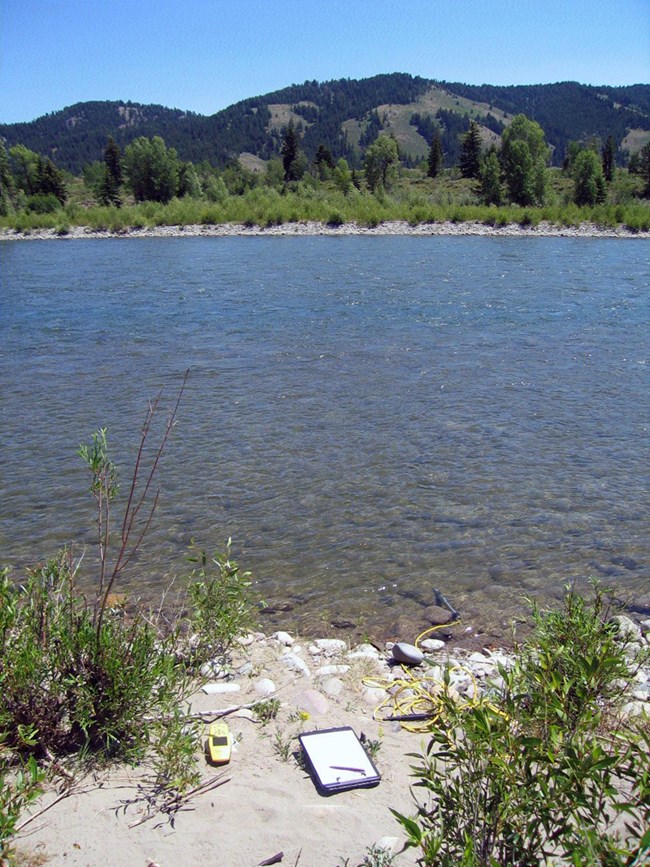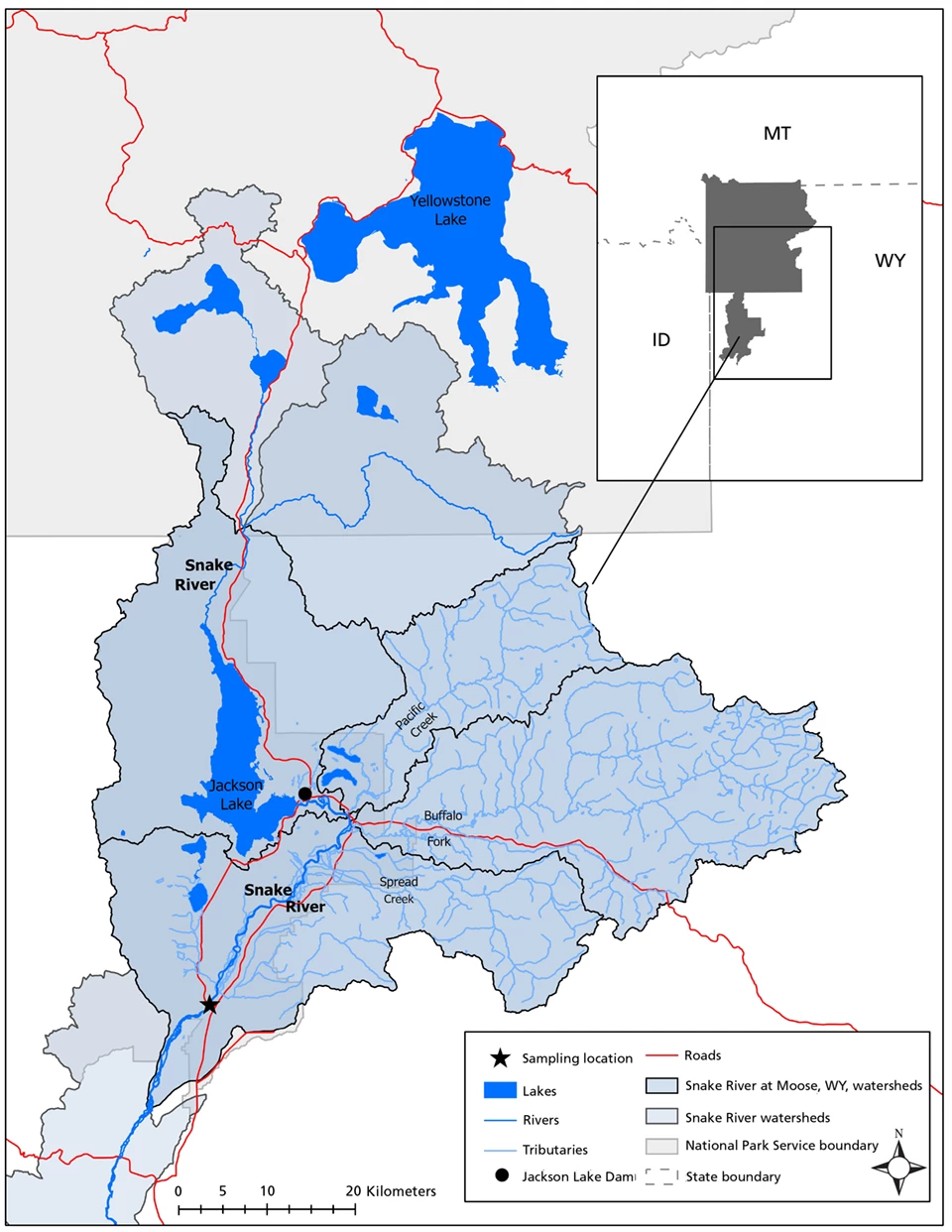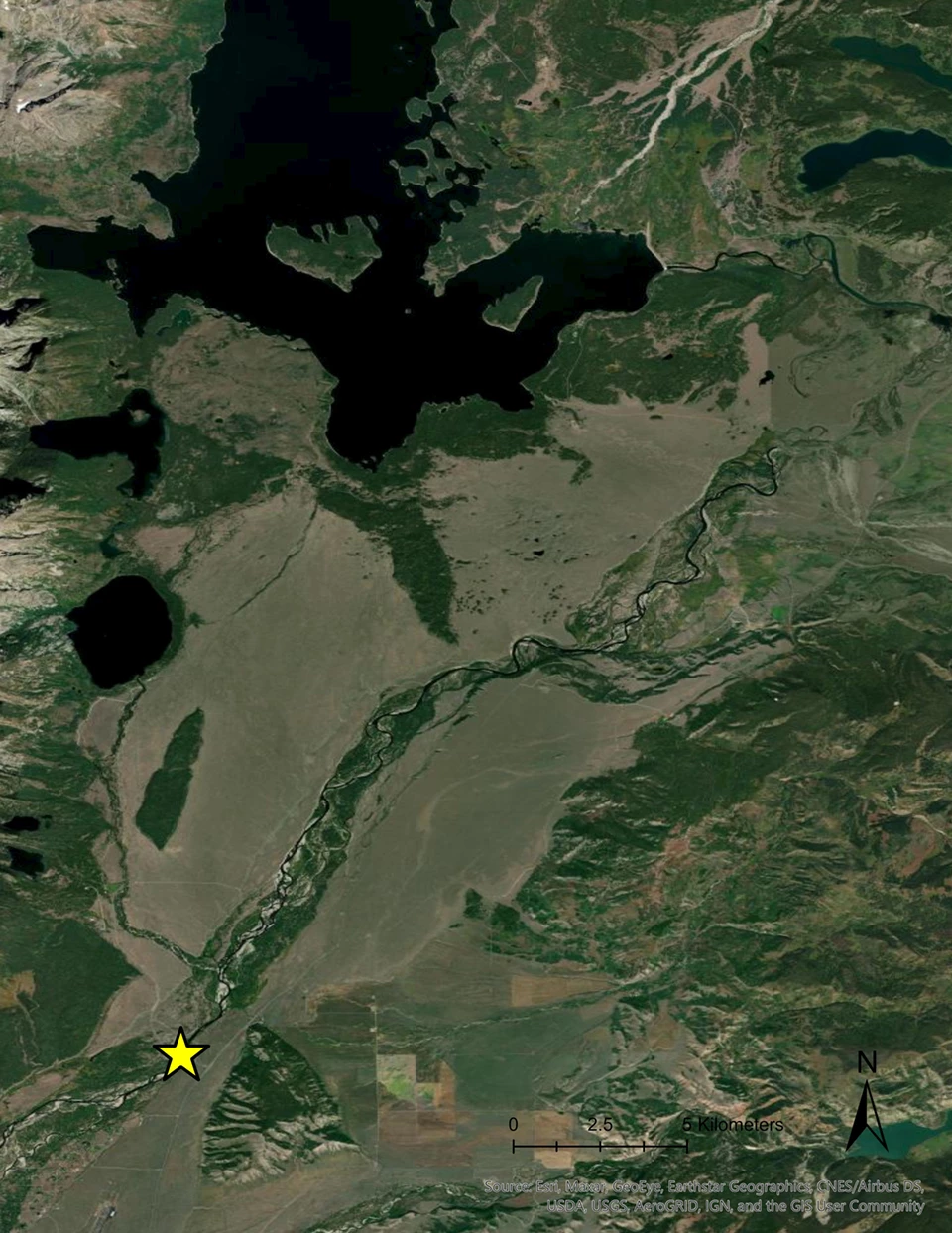Part of a series of articles titled Water Resources Monitoring in the Snake River at Moose, Wyoming, 2021.
Article
The Snake River at Moose, Wyoming

NPS
The Snake River is the largest tributary of the Columbia River. It originates in western Wyoming and flows through Idaho and Oregon before converging with the Columbia River in Washington state. Its drainage basin also includes parts of Utah and Nevada. The Greater Yellowstone Network samples the Snake River in Wyoming above and below Jackson Lake. Here, we focus on the Snake River monitoring site below Jackson Lake at Moose, WY. At this location, the Snake River flows within the boundaries of Grand Teton National Park, from the Jackson Lake Dam to the monitoring station in Moose, WY. Its tributaries, which originate from the east in the Teton Wilderness of Bridger-Teton National Forest, include Pacific Creek, Buffalo Fork, and Spread Creek.
The Jackson Lake Dam exerts considerable influence on the Snake River from the dam to the confluence with Pacific Creek 4.5 miles downstream. In this stretch of the river, dam operations can reduce peak flow by half the estimated unregulated flow and the median date of maximum flow can be delayed by over three weeks, which can have significant impact on the hydrologic system. The entire watershed for this stretch of the Snake River occurs on lands administered by the National Park Service and U.S. Forest Service. All river segments are managed under the Snake River Headwaters Comprehensive River Management Plan, as directed by the Craig Thomas Snake Headwaters Legacy Act of 2008 (PL111-11), a 2009 amendment to the 1968 Wild and Scenic Rivers Act.

NPS

NPS
Last updated: March 7, 2022
